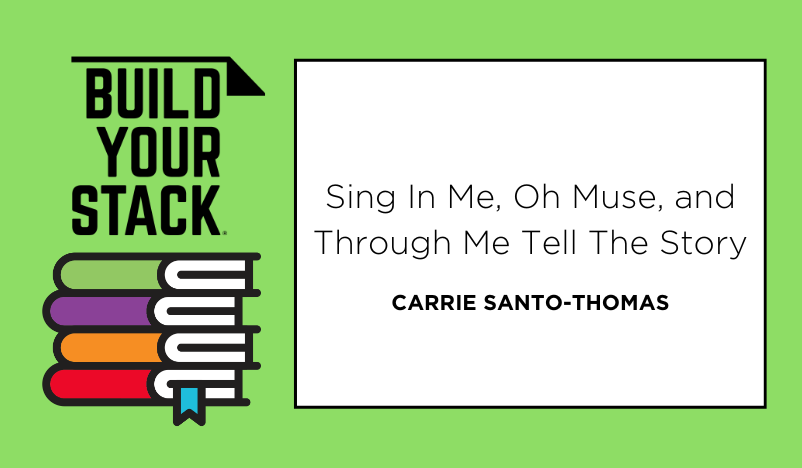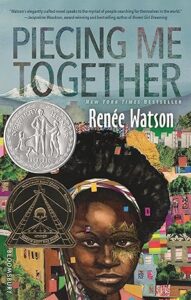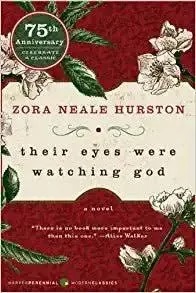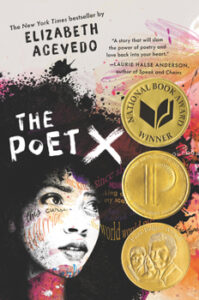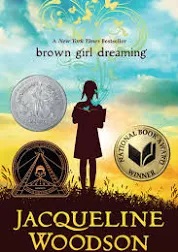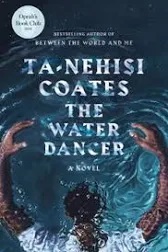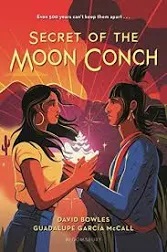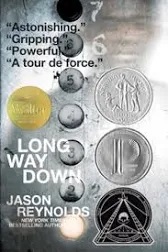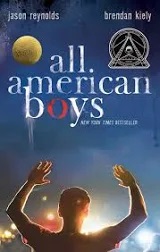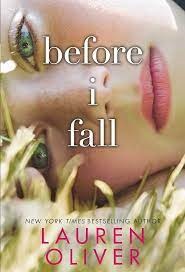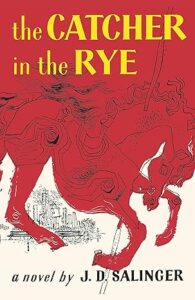This blog post was written by NCTE member Carrie Santo-Thomas. This post is part of Build Your Stack®, an NCTE initiative focused exclusively on helping teachers build their book knowledge and their classroom libraries. Build Your Stack provides a forum for contributors to share books from their classroom experience; inclusion in a blog post does not imply endorsement or promotion of specific books by NCTE.
I admire the frankness of my students who will not read. They tell me that they do not read, will not read, and that my well-curated, beautifully diverse, and up-to-the-moment-current shelves are lost on them. They politely decline offers for audiobooks, or comics. They console me with reminders that it’s not me they hate, just reading. And then they put their earbuds back in, and I leave them alone for a while. But not forever. I have three stories that are my Hail Mary play in situations like this; but before I tell you the titles, indulge me by trying to guess.
First, a young woman is betrayed by her lover. She can’t believe it until she has to believe it. Then she gets angry. Then she gets strong. This story is a modern Campbellian hero’s journey that dismantles our cultural obsession with youthful, naïve beauty, replacing it with the confident wisdom that comes with age and experience. The repeated imagery of spiritual motherhood and ordinary magic demand the audience’s attention.
[Hint, these books would pair well with the story.]
The next is a fictional account of The Longchains, “survivors” of a sunken slave ship living underwater, sinking slave ships in order to “free” their brothers and sisters. This story is set in the Caribbean and told in both English and Spanish. It integrates fairly recent current events, such as the drowning of Alan Kurdi, a three-year-old Syrian refugee, and Jonylah Watkins, a baby girl killed amid Chicago gang violence. In this story, though, Alan and Jonylah survive and do good in their communities. It is a story that examines the long chains of the slave trade and its impact on the American experience throughout the centuries.
[Hint, these books would pair well with the story.]
And finally, a story that is a deeply allegorical bildungsroman, set in the United States in the late 1990s to early 2000s—which, I regret to inform you, makes it historical fiction. The protagonist struggles with teenage angst and disillusionment as the nation is battered by terrorism, engagement in war, and an impending economic crisis. Themes of teenage rebellion are contrasted with society’s expectations of youth, even as society itself is crumbling.
[Hint, these books would pair well with the story.]
Lemonade, by Beyoncé. Drogas Wave, by Lupe Fiasco, and American Idiot by Green Day. They’re concept albums, not books.

In the fall of 1995, I absolutely pored over the little booklet of lyrics and art enclosed in the two-disc powerhouse Mellon Collie and the Infinite Sadness by the Smashing Pumpkins. We all did. We debated what on earth Billy Corgan could possibly have meant by “I’ll never be the shine in your spit.” We memorized lyrics and cursed the bands and artists who used those precious pages to do nothing but thank their producers and list a copyright date. But before nostalgia does its thing, building walls between generations, I want to tell you: the kids still do this.
Concept albums have been around forever -if you count operas and symphonies, and why shouldn’t you? The ancient Greeks understood the power of tying story to song, with their traveling rhapsodes singing epics in exchange for hospitality. So I’m not bothered by a student who hates reading -because I know they’ve got nothing against good storytelling. In those cases, I call in a Hail Mary and ask them to listen to the album, in order, and give themselves permission to read the lyrics as they listen. And they do.
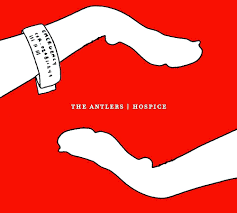


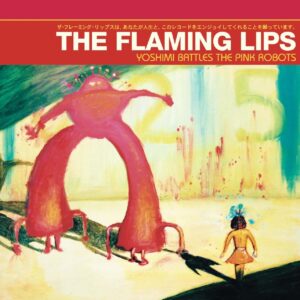
LyricsGenius has made it easier than ever to look up lyrics and research their meaning with nothing but a quick click. Spotify and Amazon Music scroll lyrics, videos, and other bonus features as songs play. The kids are reading the lyrics. And if you think they aren’t talking about what the poetry of the lines could mean, I challenge you to pause momentarily near a lunch table of ninth-grade Swifties who got shafted on Eras Tour tickets dissecting the singer’s tangled web of romance.
I’ve found that students who will ordinarily refuse reading will accept narrative in the format of a concept album. While there are certainly reading skills that will eventually require us all to crack a book, having students access narrative through a concept album allows me to assess a wealth of critical thinking and reading skills that my students have mastered, but are unwilling to demonstrate via text. What’s more, those students who enjoy deep analysis and discussion, but are too busy or overwhelmed to read another novel, can usually handle an album, and tend to enjoy the work because it feels like leisure.

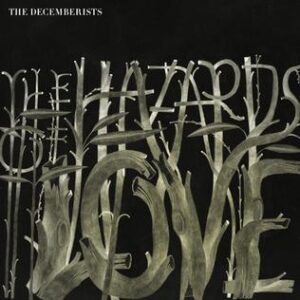

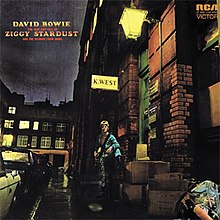
However, one of the greatest benefits to integrating concept albums into your study of narrative is that students will read and re-read, and then read again. Students who are scandalized by the mere suggestion of re-reading a paragraph, will not bat an eye at rereading lyrics while the song plays. This opens opportunities to encourage students to dig deeply into lyrics for multiple layers of meaning.
While the stack I’ve shared includes my top three picks, the concept album is a cornerstone of musical expression, spanning endless genres and themes. If I’ve convinced you to give concept albums a try, it’s important to be thoughtful about the roles they will play within your curriculum. Make sure to review text adoption policies, and thoroughly screen the lyrics you ask students to analyze. Will the album be a mentor text around which you build other literacy experiences? Or will it be the thread tracing thematic melodies throughout the various texts you use throughout the year? Most importantly, I hope you will ask yourself which of your students might find themselves returning to beautiful storytelling when we give them, and ourselves, permission to expand our definition of reading.
NCTE and independent bookstores will receive a small commission from purchases made using the Bookshop.org links above.
 Carrie Santo-Thomas is an Illinois high school teacher and curriculum specialist with twenty years of experience in the classroom. She is a member of the Build Your Stack® committee and serves on the executive board of the Illinois Association of Teachers of English. Her work is deeply influenced by her experiences as a neurodivergent scholar and educator. Connect with Carrie online.
Carrie Santo-Thomas is an Illinois high school teacher and curriculum specialist with twenty years of experience in the classroom. She is a member of the Build Your Stack® committee and serves on the executive board of the Illinois Association of Teachers of English. Her work is deeply influenced by her experiences as a neurodivergent scholar and educator. Connect with Carrie online.
It is the policy of NCTE in all publications, including the Literacy & NCTE blog, to provide a forum for the open discussion of ideas concerning the content and the teaching of English and the language arts. Publicity accorded to any particular point of view does not imply endorsement by the Executive Committee, the Board of Directors, the staff, or the membership at large, except in announcements of policy, where such endorsement is clearly specified.

